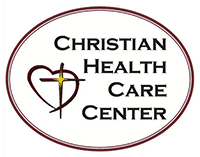
Nineteen skilled nursing and rehabilitation centers have closed in the state of Washington since 2017, according to the Washington Health Care Association. That number, which shows a rapid acceleration from previous years, is expected to increase in years to come.
The care center closures have had significant impacts on families and vulnerable populations. For example:
- The closure of the Seattle Keiro skilled nursing
facility in October 2019 displaced 115 older adults and 280 staff members. - The January 2020 closure of the
Ida
Culver House skilled nursing facility will impact 53 older adults and 147
staff members. - The only nursing home on Vashon
Island – Vashon Community Care
Center – recently converted from skilled nursing to assisted living. That
conversion forced some residents to find placement on the mainland.
Why are skilled nursing centers closing at a time when the baby boomer population is in dire need of medical and long-term care? Frankly, it has more to do with economics than the needs of humans.
According to the nursing home industry in Washington state, the closures are the result of capped Medicaid rates and ever-increasing expenses related to delivering care.
Nearly 70 percent of the patients in skilled nursing facilities rely on the state Medicaid program, yet the state’s reimbursement rates for delivering care are so inadequate that facilities are being forced to close.
Experienced CEOs and skilled nursing administrators are finding it increasingly difficult to balance expenses with income in the care centers they manage.
For example, in recent years, Washington state voters approved a series of escalating minimum wage increases. On Jan. 1, 2020, minimum wage rates will increase again, this time by 12 percent.
At the same time, Medicaid reimbursement rates – government funding for health care services provided to lower-income individuals – have not increased to align with wage increases. The Medicaid reimbursement rates currently being paid to nursing homes were last rebalanced on July 1, 2018, and that rebalance was based on 2016 cost reports.

Not many business models can thrive in situations in which expenses increase significantly while income numbers remain flat.
The 12-percent wage increase in Washington state will ripple dramatically through all industries, including skilled health care centers.
At Christian Health Care Center (CHCC) in Lynden, for example, the impending January 2020 wage increase has already led to higher expenses related to supply vendors and service providers – from lawn care to food service. CHCC also needed to raise wages for experienced patient care staff in 2019 to help with recruitment and retention in a highly competitive job market.
Again, the Medicaid rates remained capped.
Industry advocates, such as LeadingAge Washington are doing what they can to bring about change in Washington state. They are proposing changes to legislation that would require annual “rebasing” of the direct and indirect costs of delivering care, an action that could help stabilize Washington’s skilled nursing industry in 2020.
“Pressures in the skilled nursing industry are at a critical level,” said Patrick O’Neill, CEO of Christian Health Care Center. “A coalition of stakeholders has formed to raise awareness of this issue. We really need the public’s help to advocate for eldercare.”
Anyone who is involved in the skilled nursing industry – staff, residents, volunteers, family members, vendors, concerned community members – can engage in this process by encouraging lawmakers to fix the Medicaid reimbursement rate problem.
An online form has been created to make it easy to contact Washington state legislators who have the power to make a change.
Please share your feedback and ask elected officials to address this issue via this online form!
In the meantime, O’Neill says that the Whatcom County skilled health care center that he oversees will continue doing what they do to the best of their abilities, shifting and adjusting to the current market as needed.
“The board of trustees and leadership team at our nonprofit remain fiercely dedicated to the stewardship of Christian Health Care Center,” he said. “Every day, we work hard to be fiscally responsive so CHCC can serve our community, as it has since 1956, for decades to come.”
